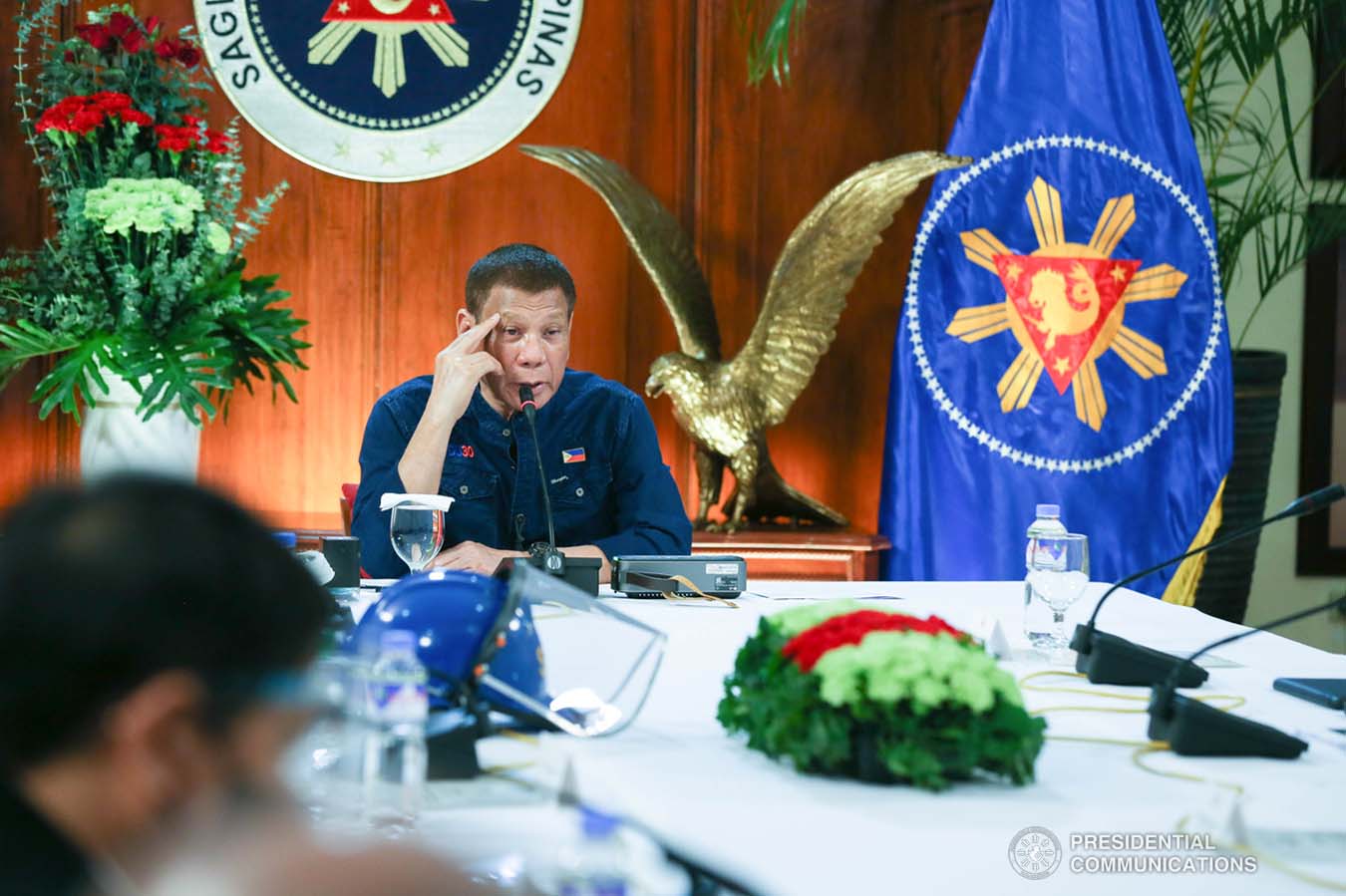News
PRRD options: MECQ extension or localized lockdowns in NCR

FILE: President Rodrigo Roa Duterte talks to the people after holding a meeting with the Inter-Agency Task Force on the Emerging Infectious Diseases (IATF-EID) core members at the Malago Clubhouse in Malacañang on July 30, 2020. SIMEON CELI JR./PRESIDENTIAL PHOTO
MANILA – President Rodrigo Duterte has the options to either retain the modified enhanced community quarantine (MECQ) status or impose localized lockdowns in Metro Manila and its nearby provinces, Cabinet Secretary Karlo Nograles said on Friday.
“We can retain the MECQ but again, siyempre (of course), the economy would be something that we must consider. Otherwise, if we go GCQ (general community quarantine), we will have to be very strict doon sa ating (in implementing) localized lockdown,” Nograles said in an interview with ABS-CBN News Channel.
Nograles, who also serves as co-chair of the Inter-Agency Task Force for the Management of Emerging Infectious Diseases (IATF-EID), issued the statement after Malacañang said it was “highly unlikely” for Duterte to extend MECQ in Metro Manila and the provinces of Bulacan, Cavite, Laguna, and Rizal.
On Thursday, Malacañang said it was a “remote possibility” that Metro Manila might be under modified GCQ (MGCQ), the least restrictive community quarantine imposed by the national government.
In the event that Duterte decides to downgrade the MECQ status in Metro Manila and its nearby provinces to GCQ, local governments should be “more active” in implementing localized lockdowns to combat the coronavirus disease (Covid-19), Nograles said.
“We can assure the public na even if mag-GCQ, mas magiging aktibo po ang pag-localized lockdowns natin (that even if we impose GCQ, we will be more active in implementing localized lockdowns). That’s the other option,” Nograles said.
The implementation of MECQ in Metro Manila and the provinces of Bulacan, Cavite, Laguna, and Rizal will lapse on August 18.
Metro Manila and its nearby provinces were initially under GCQ but Duterte on August 2 decided to upgrade the quarantine status to MECQ following the health workers’ call for “time-out” to prevent the collapse of the country’s health care system amid the Covid-19 pandemic.
In another interview with CNN Philippines’ The Source, Nograles admitted that there are still “challenges” because most cases of Covid-19 have been recorded in Metro Manila, Bulacan, Cavite, Laguna, and Rizal.
“Ito pong ginawa nating (With regard to the implementation of) MECQ, we will feel the positive effects of this in the coming weeks because of the incubation period of the virus,” Nograles said. “We’ll see a slowdown in that in the next few weeks.”
Nograles said the IATF-EID had already done a “preliminary assessment” of the situation in Metro Manila and its nearby provinces.
Nograles said the IATF-EID’s initial recommendations on the new quarantine classifications beginning August 19 have already been transmitted to the local governments of Metro Manila and its nearby provinces to give them the chance to make an appeal.
He, however, refused to bare additional details, saying he does not want to preempt Duterte’s announcement of fresh quarantine rules after August 18.
“Today, sa IATF meeting namin this afternoon (in the IATF meeting this afternoon), we will be looking at the appeals, if any, of the different Metro Manila and neighboring provinces, LGUs. Then we will give a final recommendation to the President,” Nograles said.
Duterte is expected to announce the new community quarantine classifications in the country on August 17, Malacañang said on Thursday.
Nograles said the final decision would come from Duterte.
“Ultimately, si Pangulo naman ang magde-desisyon kung ire-retain ba natin ang MECQ (the President will be the one to decide whether we retain MECQ) or we to go to GCQ,” he said.

